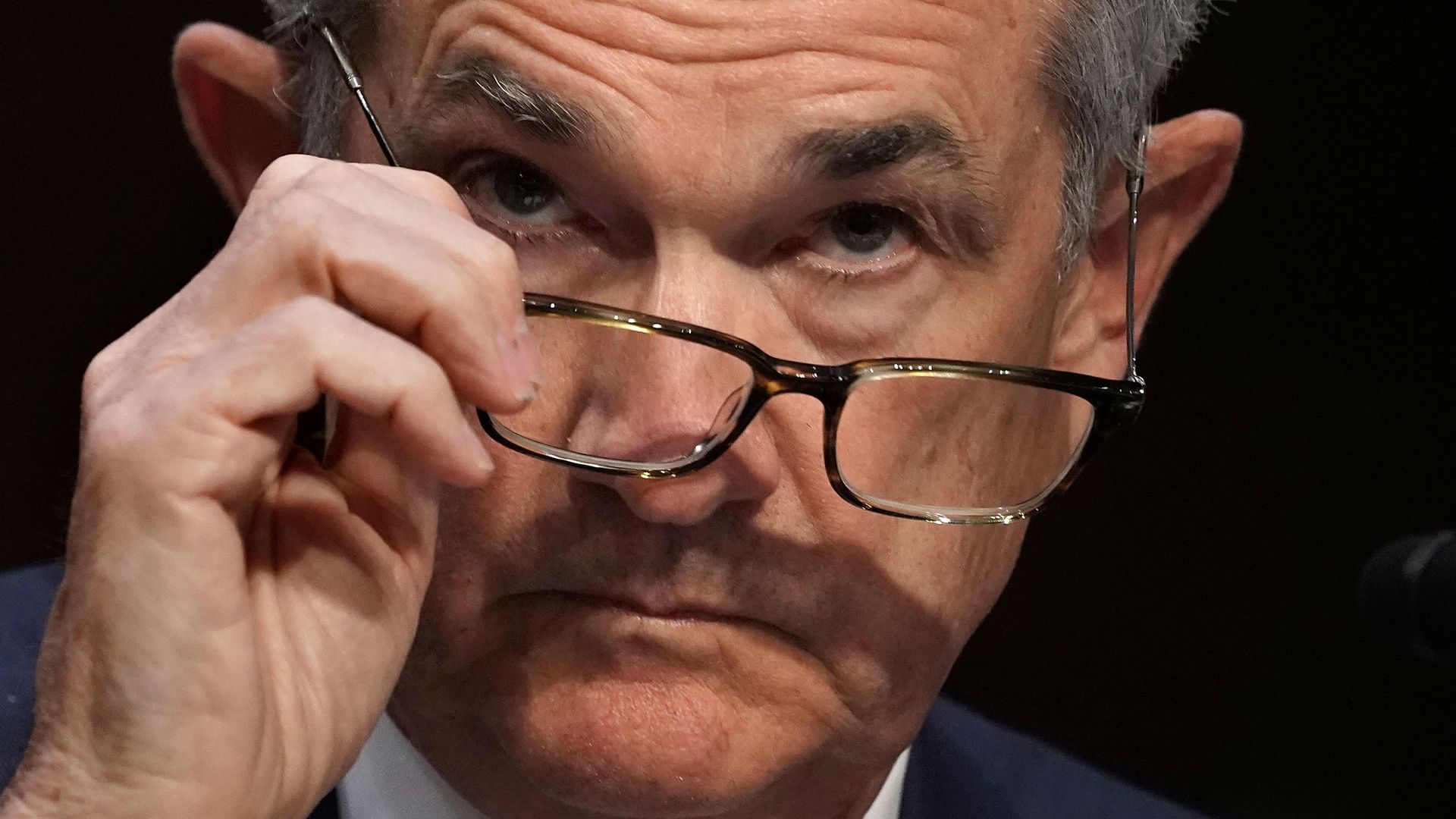Plus: More trouble in Europe | Monday, October 31, 2022
| | | | | | | Presented By Equitybee | | | | Axios Macro | | By Neil Irwin and Courtenay Brown · Oct 31, 2022 | | Brace yourself for a busy week ahead: Job openings data for September comes tomorrow, the Fed wraps up a two-day policy meeting on Wednesday, and the Bank of England delivers an interest rate decision on Thursday. We finish the week with the October jobs report. Phew! - Ahead of that busy slate, we look at the ultra-delicate balance for Fed policy this week. Plus, we break down Europe's ugly inflation news.
Today's newsletter, edited by Javier E. David and copy edited by Katie Lewis, is 673 words, a 2½-minute read. | | | | | | 1 big thing: The Fed's tricky balance this week |  | | | Fed chair Jerome Powell. Photo: Alex Wong/Getty Images | | | | The Fed is likely to raise its target interest rate by a fourth-straight supersized 0.75 percentage points Wednesday afternoon. But the real thing to watch is how Fed chair Jerome Powell communicates what comes next. - He faces a delicate balance of trying to signal that the Fed will eventually move toward a more cautious pace of tightening without appearing to have a lack of resolve to bring down inflation.
Why it matters: The Fed has to slow down its rate campaign eventually, and already is at risk of careening the economy into a deep recession. But delivering that message is fraught, given the way markets have rallied at any hint of a policy pivot in recent months. - The mere possibility that the Fed will slow down and raise rates only half a percent in December could fuel a stock and bond market surge — the opposite of the tighter financial conditions officials want to see.
- A perception that the Fed is wavering, even while inflation rates remain high, could undermine its credibility as an inflation-fighter.
The case for slowing down rests on the idea that monetary policy works with long lags; so the cumulative effect of the rate hikes already implemented this year is only beginning to impact growth. - Fed officials would rather not keep bludgeoning the economy with 0.75 percentage point rate hikes when they're uncertain how much damage their actions have already caused.
- "While Powell's Fed may not want to tighten much more for now, he likely also doesn't want to see a material easing in financial conditions either," said Tiffany Wilding, PIMCO North American Economist, in a note.
Flashback: The Fed and the markets have been stuck in a feedback loop for months now. Markets interpreted Powell's July press conference as having signaled that the tightening campaign would soon end, and soared as a result. The bottom line: Powell will seek to assure that his inflation-fighting resolve is rock-solid, while simultaneously being flexible enough to adapt as the data changes. |     | | | | | | A message from Equitybee | | 3 steps to invest in high-growth, VC-backed startups | | |  | | | | With Equitybee, you can get access to investment opportunities traditionally dominated by VCs. Here's how: - Join the accredited investor network.
- Take your pick of high-growth startups.
- Grow your portfolio.
Get started in minutes. | | | | | | 2. Europe's ugly inflation print |  Data: Eurostat; Chart: Axios Visuals However bad Europe's inflation problem is (and it is bad), it got much worse in October. - Eurozone inflation rose 10.7% this month from the same period a year ago — a new record, according to a preliminary estimate from the European Commission. That's a rapid acceleration from the 9.9% reached in September.
- The key driver is soaring energy costs, as fallout from Russia's invasion of Ukraine continues to hit the economy. Energy prices were up 42% from a year ago in October.
- Warm weather and a strong buildup of natural gas supplies have led to a decline in wholesale prices, but that has yet to trickle down to household energy bills.
Why it matters: The eurozone is facing a toxic mix of rising inflation and slowing growth. The ECB acknowledged the risk of a slowdown last week but remained focused on stamping out inflation, with little signal that it will abandon its interest rate hiking mission. That's setting up the eurozone for bleaker outcomes in the months ahead. - Data also out today showed that the eurozone managed to avoid a recession last quarter.
- But while the economy grew 0.2% compared to the prior quarter, it's a notable slowdown from the 0.8% registered during the April-June period. (Their GDP figures aren't annualized in the way that is standard in the U.S.)
What to watch: There are signs price pressures are intensifying elsewhere in the eurozone. An inflation gauge that strips out energy and food prices also hit a record high, as Bloomberg noted. |     | | | | | | A message from Equitybee | | Unlock access to high-growth startups | | |  | | | | Equitybee gives accredited investors unprecedented access to high-growth, VC-backed startups. What's in it for you: Invest in startups at past valuations by funding employee stock options. Then, you receive a portion of the future share. Get started in minutes. | | |  | | Are you a fan of this email format? It's called Smart Brevity®. Over 300 orgs use it — in a tool called Axios HQ — to drive productivity with clearer workplace communications. | | | | | | Axios thanks our partners for supporting our newsletters. If you're interested in advertising, learn more here.
Sponsorship has no influence on editorial content. Axios, 3100 Clarendon Blvd, Arlington VA 22201 | | | You received this email because you signed up for newsletters from Axios.
Change your preferences or unsubscribe here. | | | Was this email forwarded to you?
Sign up now to get Axios in your inbox. | | | | Follow Axios on social media:    | | | | | |
No comments:
Post a Comment
Keep a civil tongue.